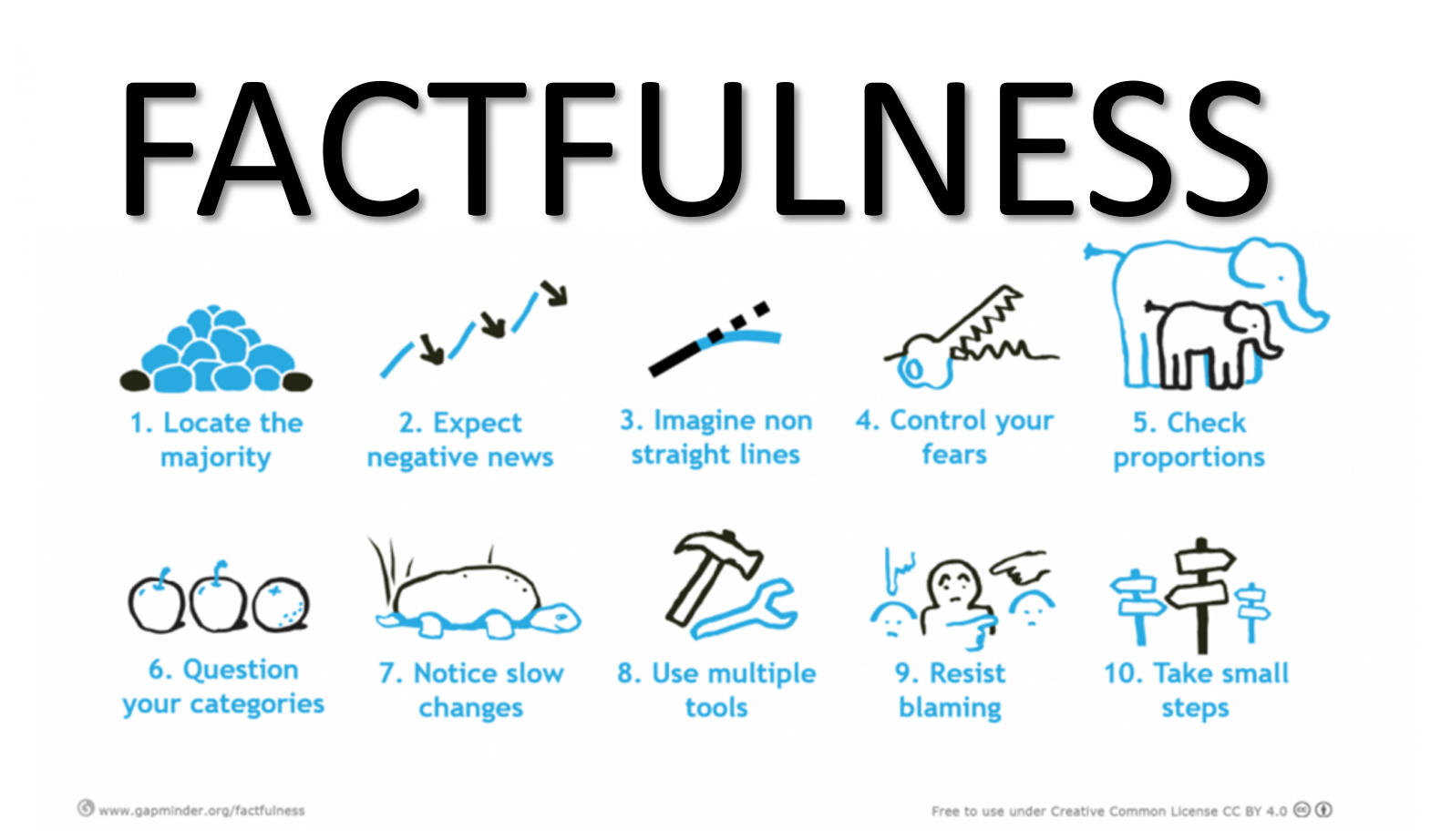
Prepare to have your worldview challenged. Factfulness: Ten Reasons We’re Wrong About the World – and Why Things Are Better Than You Think, by the late, great Hans Rosling and his collaborators Ola Rosling and Anna Rosling Rönnlund, is a powerful antidote to the pervasive pessimism and misinformation surrounding global trends. The book starts by proving its point: most people, from laypersons to Nobel laureates, perform worse than chimpanzees randomly guessing answers on a simple quiz about global poverty, health, education, and population trends. This isn’t about lack of intelligence; it’s about a systematically distorted view of reality.
Rosling argues that our understanding is often based on outdated information, dramatic media narratives focusing on negativity, and, most importantly, deeply ingrained psychological biases or “instincts” that lead us astray. The bulk of the book brilliantly unpacks these ten dramatic instincts:

- The Gap Instinct: Seeing the world as divided into two distinct groups (e.g., rich vs. poor, developed vs. developing) while ignoring the vast majority who fall in the middle and the overlapping continuum.
- The Negativity Instinct: Believing the world is constantly getting worse, ignoring immense, gradual improvements in areas like child mortality, extreme poverty, literacy, and life expectancy. We notice bad news more easily than slow progress.
- The Straight Line Instinct: Assuming trends will continue linearly, failing to recognize curves, S-bends, humps, or exponential changes common in real-world data.
- The Fear Instinct: Overestimating risks that trigger our primal fears (e.g., violence, disasters) while underestimating less dramatic but more common dangers. Our perception of risk is skewed.
- The Size Instinct: Misjudging proportions and the significance of numbers without proper context or comparison. A large number might seem alarming until compared to the total.
- The Generalization Instinct: Stereotyping and assuming characteristics apply to entire groups (nations, cultures, classes), often overlooking the strong correlation between living conditions and income levels, which change.
- The Destiny Instinct: Believing that the inherent characteristics of people, cultures, or nations determine their fate, ignoring the slow, fundamental changes that occur over time. Societies are not static.
- The Single Perspective Instinct: Favoring simple, single causes and solutions for complex problems, often applying one’s own expertise or ideology like a hammer to every nail.
- The Blame Instinct: Seeking a simple scapegoat to blame when things go wrong, distracting from understanding complex, interacting systems and preventing future issues.
- The Urgency Instinct: Feeling the need to act immediately when faced with perceived danger or opportunity, leading to rushed decisions, stress, and errors without full consideration.
To counter misleading categorizations like “developed” vs. “developing,” Rosling proposes a more practical framework of four income levels (roughly $1, $4, $16, and $32+ per day), which better reflects the reality of people’s lives, access to resources (like transport, food, healthcare), and the infrastructure around them.
Factfulness isn’t about naive optimism or denying real problems. It acknowledges that things can be simultaneously “bad and better.” Its core message is a call for intellectual humility, critical thinking, and a commitment to understanding the world based on reliable data, viewed with proper context and perspective. It’s an essential, eye-opening read that equips you with tools to resist dramatic distortions and appreciate the often-unseen progress shaping our world. As Rosling emphasizes, we need numbers to understand the world, but we can’t understand it with numbers alone – context and critical thought are paramount.